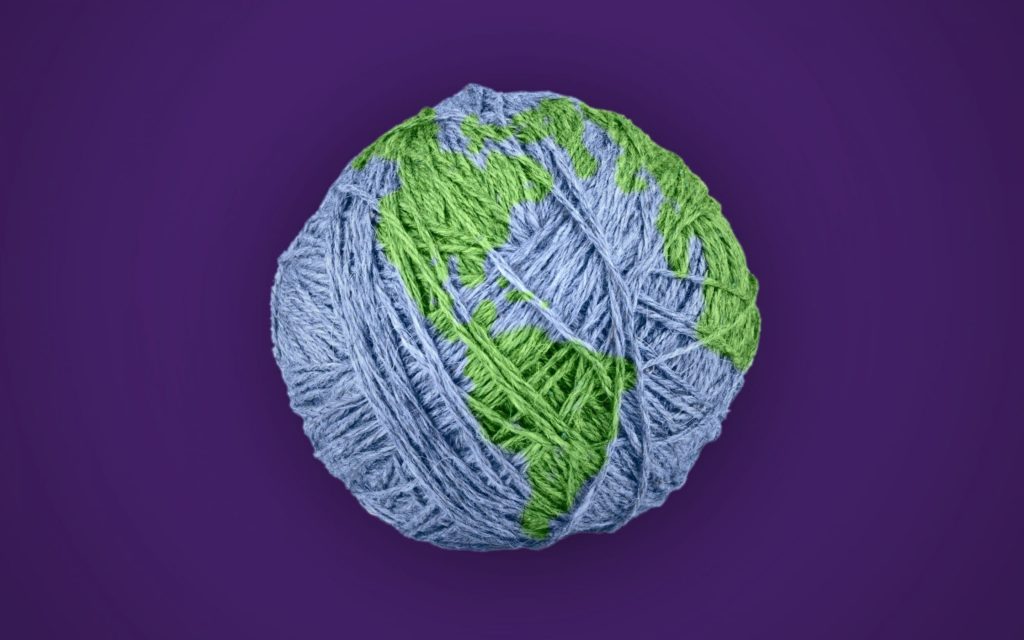How often have you clicked “add to basket” in the last couple of weeks? Online sales have spiked significantly during the pandemic. Understandably, it’s hard to resist cheap and trendy fashion, especially when it’s delivered to your door and can be easily returned.
However, it comes as no surprise that fast fashion from retailers like SHEIN, Pretty Little Thing, and Primark often have questionable labor policies, undesirable production practices and a lack of an environmental consideration. Having said that, there is hope, as in the recent years there has been a significant trend to shop environmentally friendly. According to YouGov, 60% of ASOS customers are more likely to try and only purchase from companies who are socially and environmentally responsible. Since the early days of environmental awareness, we’ve come a long way from self-made crochet hats and scarves. Nowadays sustainable fashion can be SO.MUCH.FUN. Here are some examples:
Plant faced:
https://plantfacedclothing.com/

Plant Faced Clothing is a British brand that offers cruelty-free, innovate streetwear with some super hip designs. It’s funky creations such as “Ethical is the New Black”, “Babe Ain’t Yo Bacon”, “In Kale we Trust” or “Kale ‘Em With Kindness” are unisex and inclusive. By using eco-friendly products such as organic cotton, it limits the amounts of chemicals, water and wastewater used in production. It ranges from £25 for a T-Shirt to £49 for a Hoodie.
Nu-In:

Nu-in was founded in 2019 by a small group of friends, best known for influencers like Stefanie Giesinger and Marcus Butler as the faces of the brand. Nu-in focuses on having the lowest possible impact on the environment by using a high proportion of eco-friendly materials. It reuses most of its offcuts to minimize textile waste. Instead of putting economic profit as a main goal, it aims for creating sustainable fashion that puts the planet first. Nu-in offers trendy and classic clothing items, resembling the trends you would find at websites such as “NA-KD”. It ranges from £25 for a T-shirt to £40 for a sweater.
10K Apparel:

The brand was founded in 2019 in Berlin with the goal of creating high quality unisex basics in a sustainable way and at fair prices. Designed in Moabit, Berlin, 10k focuses on creating comfy clothes that make you look like the ultimate Instagram badass. It uses re-growing and sustainable raw materials and states that all styles are made from 100% bio cotton, grown in USA and Turkey. Moreover, all items have passed a Fair Wear Foundation audit. The prices range between 49,90 € (£44.50) for T-shirt and 69,90 € (£62.36) for a Hoodie.
Having said that, even though those brands make a good impact in changing the way we dress, there is one thing we have to remember: there is not such a thing as “sustainable shopping”. Even though clothes might be branded as recyclable and made out of 100% biodegradable cotton, the buttons and the seams are usually made out of plastic. Even though a brand might use 95% recycled polyester, the other 5% of fibers used are usually not recycled. Just because a shop states that all its clothes are dyed in a “clean” way, doesn’t mean that there were no chemicals involved in the process. In most cases “clean dying” refers to low impact dying that doesn’t use any heavy metals or toxins – but this is in no way a natural way of dying. Moreover, all those cardboard boxes and plastic packing have to be disposed somewhere. Strictly speaking, everything we purchase as new adds up to those 2 billion tons of waste that annually end up in landfills worldwide.
The best way to protect our planet is restyling what you already have at home. In addition to that, you can find some great treasures in charity shops and on secondhand websites such as Depo and Vinted. And if you are feeling very bold, have a go through your grandparent’s closet – make the 50s great again!
Header image credit: Fabrik Brands

